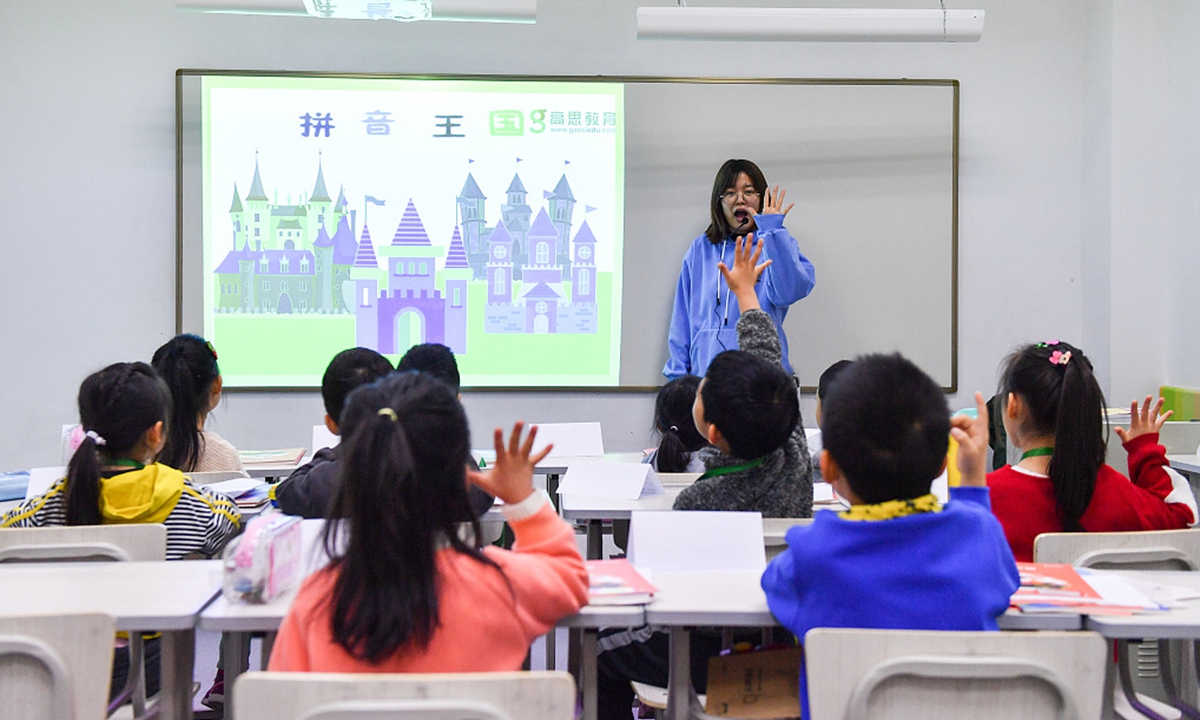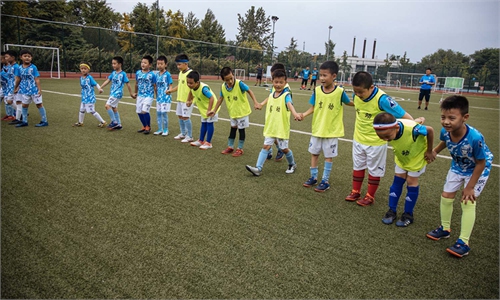Foreign media hyping of China issuing licenses to education companies ‘misinterpretation’ of policy: industry insider

education Photo:VCG
Sources and experts from China's education field said that foreign media organizations' hype that China plans to issue licenses to education companies is a "misinterpretation and misunderstanding" of Chinese policy. Issuing these licenses is part of the country's policies on regulating private tutorial services, and the regulation will only "grow stricter, won't bounce around," they said.
The Wall Street Journal, along with other foreign media outlets, began to hype this information on Monday, saying that the Chinese government is planning to issue "more than a dozen" licenses that would allow education companies to offer after-school tutoring on a nonprofit basis while being allowed to make a profit in other businesses, such as tutoring adults for professional exams.
The foreign media reports are a "misinterpretation" of China's previous policy, which was issued in September this year, telling education companies that formerly registered their businesses to ask authorities for approval of their operations, a source close to the Ministry of Education told the Global Times.
The notice issued by the education ministry in September stipulated that online education companies providing tutorials for students from first to ninth grade (the compulsory education period) must obtain approval from the government and register their licenses as "nonprofit corporate entities," the source said.
For those offering in-person private tutorials, they have the option of either rewriting their operations according to the "double reduction" policies, or writing off their profitable education operations, read the ministry's policy.
Since July, when students were enjoying their summer vacation, the Chinese government has rolled out a slew of measures, dubbed "double reduction," also described as the "most stringent in decades."
The policies are intended to ease the burdens and anxiety of students and parents. They include suspending off-campus curriculum subject tutoring courses for students on holidays, banning curriculum-based tutoring institutions from going public for financing or receiving foreign investment, and encouraging tutorial companies to make a profit in other sectors.
An employee surnamed Zhao, who was one of the curriculum design staff at online English training agency VIPKID, told the Global Times on Tuesday that the foreign media reports of "issuing licenses" are not new. It's the same as the previous regulation campaign undertaken by the authorities since the double reduction, which strictly limited class time for curriculum training and ordered private tutoring agencies to transform the sector to a nonprofit basis.
Zhao revealed that VIPKID had planned to provide non-profit curriculum training services but the fee had to be cut to 30 yuan ($4.69) per class hour. "Most staff in the curriculum training sector will leave because of the low pay, and the overall transformation of the private tutoring industry will be accelerated," she said.
Stocks in these companies began to gain after most foreign media published their "misinterpretations" of China's education policies, which they deemed as a signal that China is going to resume after-school tutorials.
The source from the Ministry of Education also said that regulation of private schools will only get stricter, and "the policies won't be relaxed."
Education industry analysts said that China is determined to regulate off-campus training, and it will not shrink back because of some minor problems.
Last week, China released a new announcement jointly composed by eight central government departments, banning advertisements for off-campus training on railways, subways and buses.
Xiong Bingqi, director of the 21st Century Education Research Institute in Beijing, told the Global Times on Wednesday that the "misunderstanding" in foreign media reports might be related to some companies' attempts to make a profit by hyping this topic.
If listed education companies have a training business in compulsory education subjects, they must divest. If they reject this option and also have no intention to make a transformation, they must delist, Xiong explained.
"These companies are clear about the situation and some of them may still want to reap benefits by hyping the government policy."
Xiong also noted that some institutions still believe that it will be difficult for the country to stick to the policy to the end, as they believe there is demand from parents.
"Such misreading clearly despises the country's determination to promote 'double reduction' to reduce the intense stress of students brought about by relentless extracurricular activities and ease the childcare burden on urban parents."

